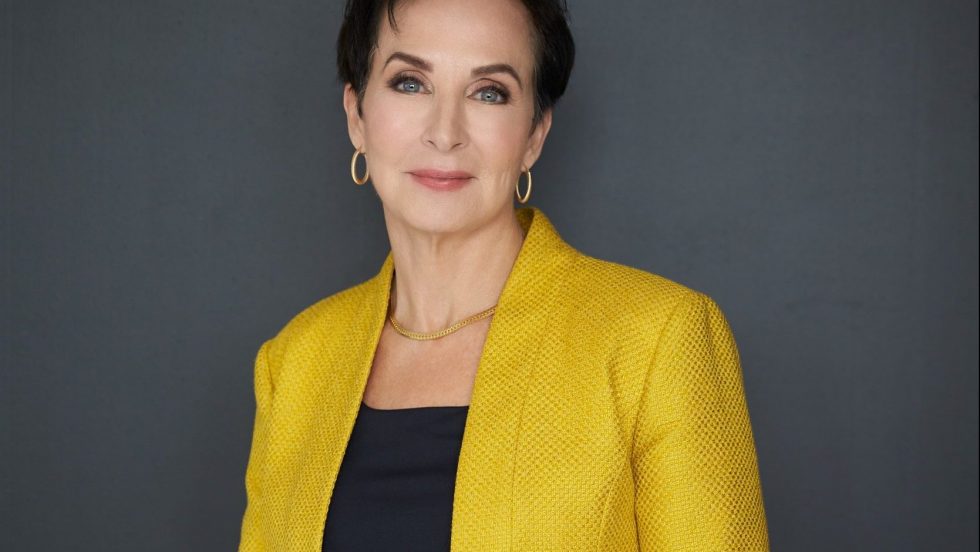Biote CEO Terry Weber ’71 Defined “What Purpose Really Means” at New College

This passion of Weber’s was ignited during her undergraduate years. One of the greatest lessons she learned from studying at New College was that true success is knowing what your purpose and passion is, versus just having a flawless college transcript. She firmly believes in the application of knowledge, purpose and passion at scale, and this mentality has shaped how she views the world of life sciences and her role in transforming it.
“I credit New College with my avid passion to learn, my need to innovate, my leadership skills, my critical-thinking abilities—but, most importantly, my ability to connect,” Weber said. “And yes, my evenings dancing at Palm Court released a woman who can’t be stopped! I was a CEO of a billion-dollar company at 38. New College convinced me that I could solve whatever obstacles were placed in front of me.”
Weber’s desire to change the world for the better started early in her career. When she was the CEO of Amen Clinics and brainMD, Weber helped enable these companies to change how psychiatry was practiced—by leveraging the effectiveness of clinical practice and establishing an exceptional roster of physicians, professional managers and clinic directors.
Weber also co-founded PreventiveMedicine.org—a nonprofit organization dedicated to advancing innovation, research and education in wellness and integrative medicine. As the first female president and CEO of Frederick’s of Hollywood, Weber increased the company’s e-commerce business from $500,000 to $7.8 million in fewer than 18 months. The annual sales of operations that Weber has headed throughout her career have ranged from $100 million to $2.5 billion.
Just last year, Weber was named one of PharmaVOICE’s “100 Most Inspiring People of 2021” in the life sciences industry, and Biote was announced as one of the “50 Fastest-Growing Women-Owned/Led Companies” by the Women Presidents Organization (WPO) in collaboration with JPMorgan Chase & Co.
Today, Weber is obliterating the stigma of menopause with a $737-million special-purpose acquisition company that will enable Biote to accelerate accessibility to 200 million Americans affected by hormone imbalances.
“A main reason I accepted the CEO position at Biote was the realization that I would have the opportunity to advance scientific research in the area of women’s health and significantly improve the lives of millions of people,” Weber said. “The medical world knows women have long been understudied in clinical trials, but the gap in research about women’s health is even more vast.”
Weber has been vocal in calling for easier access to healthcare for both men and women, and she leads a dedicated group of physicians, nurse practitioners and managers who are committed to changing healthcare for the better.
Setting the stage for all of these accomplishments was Weber’s experience at New College, which began in 1971.
“At the time, my father was fighting in the Vietnam War, and I was working on Shirley Chisholm’s presidential campaign,” Weber said.
As a student, Weber wrote a thesis entitled The Use of Pareto Theory in Collective Bargaining. She completed Independent Study Projects (ISPs) about labor disputes among sugarcane workers and firefighters, hurricanes in Haiti, and Baroque music.
“All of these experiences shaped my later passions, commitments and career choices. New College taught me to be resourceful and resilient in classrooms, in my work and in my personal life,” Weber said. “My boundaries were constantly tested and pushed at New College. I no longer had the rigid expectations of success that I was raised with. Straight As and hard work weren’t enough at New College. I had to learn to figure out what I felt, what I wanted, who I was and what did it matter.”
Embracing this lesson, Weber has long been vocal in advocating for life-stage options for employees. She has been committed to creating a work environment that enables women to both guide their families forward while accomplishing work and career goals.
“We, in life sciences, must lead in offering supportive life-stage options for our employees,” Weber said. “If our industry leads, we can work toward making supportive environments routine for pregnancy, raising children, breastfeeding, menopause, elder care and more.”
To elevate this conversation, Weber recently commissioned a survey of working women (ages 50 to 65) to determine the impact of menopause symptoms and to explore how employers could provide support.
“The fact remains that women are leaving the labor force in large numbers and in higher percentages than men are, and we—as a country—cannot afford this loss,” Weber said.
Weber has developed a work policy for Biote that will be shared nationwide with other business owners and managers, and she is leading conversations on women’s health with articles in Forbes, USA Today, Nasdaq, Business Insider and the Atlanta Journal-Constitution.
Courses in economics at New College helped Weber arbitrate for massive labor strikes, negotiate complex mergers and acquisitions, and solve difficult management problems throughout her career.
Weber grew up in Washington, D.C. during the capitol riots, and she protested the Vietnam War on May Day. She said that New College’s civic engagement classes showed her effective methods of activism and empowered her to hone her skills in real-world situations.
“Later in my life, it has been important to me to model this empowerment for my children,” Weber said. “As a family, we remain committed to effective service and leadership.”
Weber is also a mentor who helps others define what purpose and passion really mean in their own ways. Her philosophy specifically involves providing others with the tools and opportunities needed to master new jobs or skills, thus opening up new career paths.
As Weber put it: “I don’t believe in giving one-off experiences but in teaching whole new ways to do something—so people can gain ownership, confidence, motivation and the skillset to move up the corporate ladder for lasting change.”
Abby Weingarten is the senior editor in the Office of Communications & Marketing.
